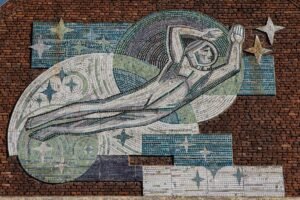
A little more than a month ago, we published a newswire about reports of internal strife at the JFK Library in Boston. Now, Thomas Putnam, the longtime director of the library has resigned after 16 years of well-respected service, during which time he helped to create and maintain a delicate balance between the culture of the Kennedy Library and the Kennedy Library Foundation. Insiders and observers describe a longstanding internal struggle between the foundation, which supervises the library’s programming and is in charge of fundraising, and the National Archives and Records Administration, which is responsible for the operations of the library itself, including development, maintenance, and access to archives. Each has its own executive.
When a new chief executive of the foundation in the person of Heather Campion was hired in March of 2014, all the stability began to erode, leading to rumors that she exhibited erratic leadership and created toxicity that eventually led to a mass exodus of staff. A full third of the staff has resigned or been fired since Campion came aboard, and morale in the entire operation is reported to be very low.
Campion’s supporters say merely that she is attempting to make needed changes in the iconic institution, but Putnam’s resignation has finally sparked open commentary among insiders, including, for instance, Tom McNaught, who preceded Campion as head of the foundation and called Putnam “absolutely the most remarkable leader of any presidential library.” He says that “Heather Campion and the board have made his position untenable.” Further, he says, the staff who left have taken an archive of institutional wisdom with them.
Previous foundation leaders, McNaught said, “always put John F. Kennedy first. […] This new administration seems to believe that they’re the more important representations of the Kennedy Library and the Kennedy Library Foundation, which is unfortunate.”
Sign up for our free newsletters
Subscribe to NPQ's newsletters to have our top stories delivered directly to your inbox.
By signing up, you agree to our privacy policy and terms of use, and to receive messages from NPQ and our partners.
Similarly, Charles U. Daly, the former director of both the library and the foundation, called the new culture under Campion fraught with cruelty and incompetence in an email to foundation chairman Kenneth Feinberg, and laid final responsibility for continuing the problems at the feet of Caroline Kennedy Schlossberg, JFK’s daughter, and her husband: “Ed Schlossberg and Caroline Kennedy have been and are the keys to the continuing development of a modern, ever-changing institution that can continue to be a beacon of hope and history. Reluctantly, I believe they and you as the foundation’s board chairman made a serious error hiring and then continuing to tolerate and shield the present director.”
“I have come to the sad and bitter conclusion” the former aide to JFK went on, “that we are stuck in the swamp of our own little Bay of Pigs without a CEO capable of leading us out of a situation that has already caused lasting damage.”
As late as August, when reports of the schism and misery in the organization began to leak out to the media, Putnam and Campion released a joint statement that read, “We are working together to make President Kennedy’s Library the best that it can be. While at times we may not agree, we are united in our desire to make this the innovative and vibrant institution that JFK would have envisioned.”
But Putnam is now gone, and some worry that historical transparency and accuracy has departed with him and other staff. WBUR reports that Tim Naftali, a former director of the Nixon Presidential Library, says Putnam championed open access to Kennedy files previously kept under wraps by the family or federal government.
“I just hope that we’re not going to see a return to the old Kennedy Library that was reluctant to talk about the president’s flaws as well as his manifold strengths,” Naftali said. “You can believe that Kennedy was a great president and also accept that he was imperfect.”—Ruth McCambridge











